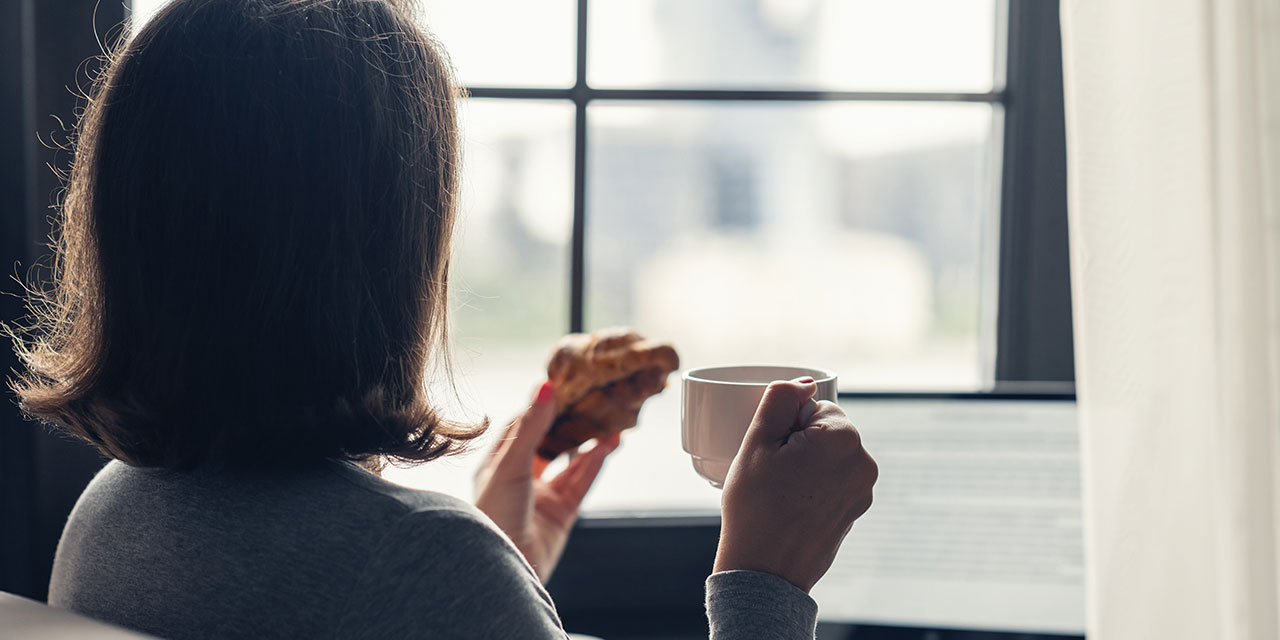As the Covid-19 pandemic continues around the world, we might ask whether it has not already profoundly changed our way of life. Might we find ourselves to be like those prisoners who miss their cells, once released, finding in their newfound independence the bitter taste of anxiety?
This past year and a half, so focused on safety, brought a remarkable lightening of social burdens: fewer contacts, social events abbreviated or made optional, long trips impossible. And the little thrill of clandestine dinners and difficult travel in Europe or elsewhere depended on the context of prohibition. The popular cliché in France of a post-Covid return to the Roaring Twenties should not fool us: many French people (and, more generally, Europeans—and doubtless, this is true of many Americans, too) no longer want to return to their offices, and they wish to keep working from home. Many are leaving big cities and settling in rural areas, dreaming of a simple life close to nature, far from the frantic consumerism and noise of urban life, sheltered from the vicissitudes of History.
Finally, a reason to check your email.
Sign up for our free newsletter today.
It’s not clear, in other words, that everyone will experience the return to normal as a liberation. The pandemic caused us to worry, but it also delivered us for a while from a still-greater worry: the anxiety of freedom. To parody Pascal, who explained that the misfortune of humanity consisted in the inability to sit quietly in one’s room, alone, we might say that the misfortune of humanity after Covid will perhaps be to be shut up in one’s room—and like it.
There would be historical precedents for such an attitude. While young people, after the French Revolution, celebrated tumultuous desires and strong passions, some authors took a different turn. These include, in France, Xavier de Maistre, author of Voyage Around My Room; the Swiss Frédéric Lamiel, in his torrential Journal, devoted to the minuscule events of his daily life; and the Russian Oblomov, who passes his short existence in bed. All stand against the two types of human beings prominent in the nineteenth century: the bourgeois, whose whole existence hinges on profit and calculation; and his adversary, the bohemian or the revolutionary, who wants to change the world and establish justice. Confronting these active characters, the lovers of banality insist on the wonders of insignificance, the greatness of inertia, the truth of laziness. They will have twentieth-century successors in Samuel Beckett, E. M. Cioran, Franz Kafka, and Robert Walser but also in the movement on the fringe of the ecology of catastrophe—“collapsology,” which preaches negative growth, the end of travel, and retreat into small communities, while waiting for the end of the world. Here we have a whole underground school that has reappeared along with the policy of confinement.
Seclusion has a sweetness that recalls the long tradition of Western monasticism: the monk’s cell, minus transcendence, plus social networks. Even before the pandemic, this hidden history had found new life, adorned with all the virtues of resistance to global warming: we must stay home to avoid the greenhouse effect, adopting a vegetative immobility and banning the movement that produces too much carbon. The universal cell of contemporary humanity, from Los Angeles to Beijing, is the couch facing the screen.
Will we once again thirst for great open spaces, or will we give way to the propagandists of stunting? For these militants, the call for struggle is not the need to save the planet but the need to punish the human race. Life must be changed—that is, reduced as far as possible to the minimum. There are so many who want to convert us, professing the best intentions, to a morality of troglodytes.
We will perhaps find that Covid has given birth to a new anthropological type: the curled-up and hyper-connected human being with no further need of others or of reality. We might then interpret the famous verse of Rimbaud, “real life is absent,” in the following way: “real life is the absence of life.” For all those who still promote the spirit of exploration and a taste for connection with others, this would be a double catastrophe: to the deaths from the virus we would add, as a kind of expiation, the penitence of shrinkage.
Photo: FTiare/iStock

